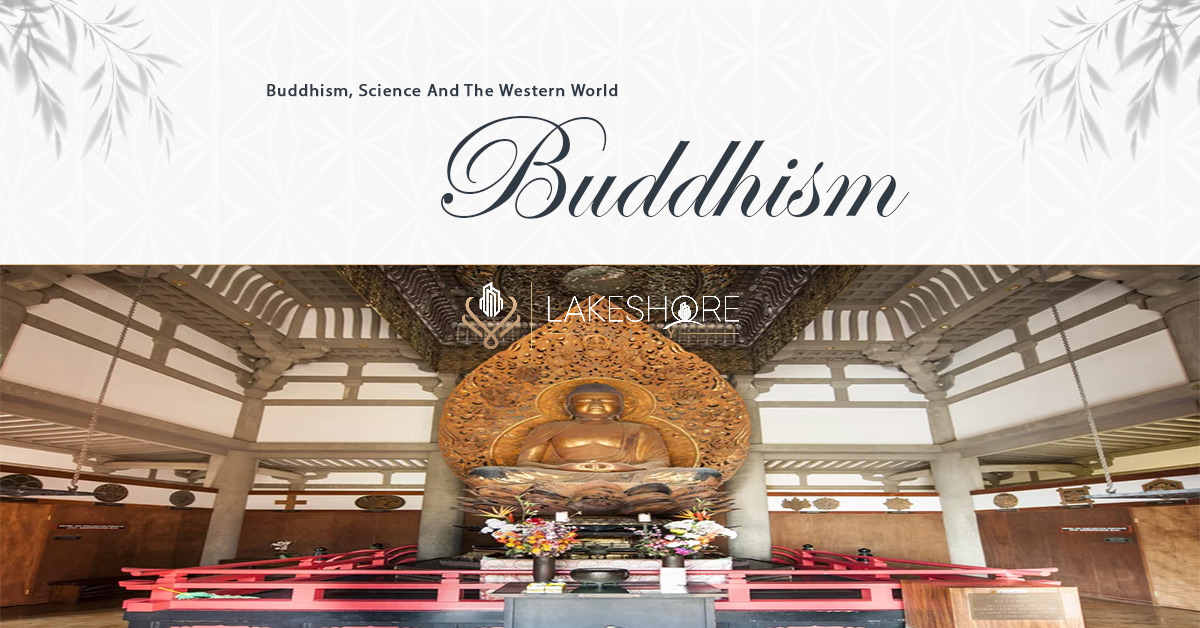Buddhism teachings are rarely criticized in the context of science vs religion conflicts. The Dalai Lama and others have made Buddhism seem more palatable to modern, scientific minds than Abrahamic religions. This congruence with science is increased by the widespread use of mindfulness techniques in medicine and psychology, frequently drawn from Buddhist and other contemplative practices.
Given its stated empirical emphasis on inward examination, one would wonder if Buddhism is a religion at all, at least in the same sense as Western monotheistic religions. Could it be called the “science of happiness?”
This question has allegedly been asked to UC Berkeley Buddhist studies researcher Robert Sharf. I discovered Sharf’s fascinating articles through debates about Buddhism and cognitive science with philosopher Evan Thompson, who works in these fields. Sharf believes that defining Buddhism as an inward-directed science of the mind misinterprets its vast and diverse traditions. Most importantly, Sharf sees “Buddhist Modernism.” in the West. Sharf believes that Buddhism’s apparent affinity for science is a direct result of its historical engagement with the West, and to miss that history would be to lose Buddhism’s deeper significance.
Sharf cited the late 1800s responses of Buddhists in Japan and Sri Lanka to Western culture in a 2007 Tricycle magazine interview. Modernization and colonization were shaking these nations. At the same time, the West was religiously changing. Sharf called this a “crisis of faith” for Protestants due to science. This led to new ideas that aimed to integrate Christianity with science and rationality. This brought Asian and Western interests together to build a new Buddhism. As Sharf says:
“As they faced with cultural upheavals in their homelands, Western religion critiques resonated with Buddhists. For Westerners, Buddhism offered a spiritual alternative to their seemingly dying religions. The irony is that these Westerners were lured to a Buddhism already changed by Western encounter.”
Modern Americans are confronting this science-loving tradition.
Sharf is not alone in arguing this. His book The Scientific Buddha University of Michigan Asian languages professor Donald S. Lopez, Jr. also observes a lot of selection in Western Buddhism. In his words:
“For the Buddha to be identified as an ancient sage fully attuned to modern science, he had to be transformed into a figure who differed in many ways from the Buddha revered by Buddhists across Asia for centuries.”
All religions are transformed by new civilizations by nature. Buddhism, which originated in India 2,500 years ago, has steadily moved east. Religions always expand their scriptural and ritual foundations while keeping them. Karen Armstrong has shown that practitioners of any age choose the meaningful portions of their religions and ignore the antiquated ones. She dubbed it “creative misreading.”
Sharf accepts the creative misunderstanding that allows Buddhist Modernism and science to coexist. “My problem,” he told Tricycle, “is not with the selectivity of rationalist and scientific Buddhists—it is reasonable in our reality. Misreading is not the issue. The process determines what is lost.”
Sharf and others worry that Buddhist Modernism loses its past by focusing primarily on inner experience (mindfulness via contemplative practice). “Look at how wary many Western Buddhists are of religious ceremony,” he tells Tricycle, “Downplaying ritual risks eroding our links to community and history. What a big loss.”
Both Sharf and Lopez value the tensions they believe should exist between Buddhist and Western worldviews. As Lopez says:
“If an ancient religion like Buddhism has anything to offer science, it is not in the facile confirmation of [science’s] findings… the Buddha, the old Buddha, not the Scientific Buddha, presented a radical challenge to the way we see the world, both two millennia ago and today.”
Sharf specifies how Buddhism challenges the sciences’ philosophical foundation. Sharf argues “Buddhist Modernism… accepts a Cartesian dualistic understanding of the world” to make Buddhism compatible with science. He says that most Buddhist instructors throughout history would find this Cartesian division strange. As he says:
Traditional Buddhist epistemology rejects the Cartesian idea of an insurmountable separation between consciousness and matter. Most Buddhist ideologies believe mind and object arise interdependently, therefore one cannot easily separate one’s perception of the world from the world itself.”
Sharf believes these differences can lead to something truly original, thus he emphasizes them. He writes, “We compromise the tradition’s capacity to critique this modern view” by rejecting everything that doesn’t fit with our modern paradigm.
I’m interested in how Indian and Asian philosophical traditions might enrich scientific arguments. Thus, I have always supported Buddhist Modernism and the Scientific Buddha.
However, Sharf, Lopez, and Thompson’s thorough readings of Buddhism’s philosophy and history can teach us a lot. Sharf says we don’t have to “argue for a naive acceptance of Buddhist epistemology and cosmology” to learn how to realistically engage with its philosophical truths. Sharf argues, “But we won’t see what Buddhism has to offer if we twist it out of shape to make it conform to contemporary norms.
Our Featured Article:
Read More: President Highlights Pakistan’s Gateway to Gandhara Civilization
Read More: Pakistan Offers ‘Huge Potential’ for Gandhara Tourism
Don’t miss the chance to invest with Lakeshore! Secure your investment today by investing your financial investment with Lakeshore in the following available options like Lakeshore City, Lakeshore Club, and Lakeshore Farms.
For More updates, please Contact +92 335 7775253 or visit our website https://lakeshorecity.com/
Lakeshore City is the upcoming elite lifestyle at Khanpur Dam. Offering no parallel amenities for the members and owners of distinguished farmhouses.
Become Part of Luxurious Lifestyle
Contact: 0335 7775253



